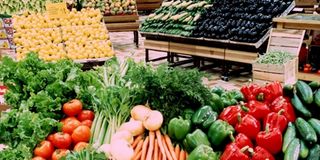Taha to challenge ban on fresh agricultural produce

What you need to know:
Amendment of VAT Act, 2014 aims to ban export of raw agricultural products whereas horticultural exports have to be sold overseas in their fresh form
Arusha. The Tanzania Horticultural Association (Taha) says it will challenge the ban of fresh agricultural produce under the amended VAT Act of 2014.
“Investors are concerned because our produce has to reach the markets in their raw form,” said the association’s executive director, Ms Jacquiline Mkindi.
The Arusha-based lobby group made up of producers and exporters, insist the new law would impact negatively on the industry, now one of the fastest growing sectors.
Amendment of the Act will be enforced from July this year and seeks to stop export of all unprocessed agricultural products, including horticultural products.
However, the Taha CEO says the measure would have dire consequences for the horticultural sector whose exports are delivered to consumers in their raw form.
These include cut flowers, fresh beans and fruits, high value vegetables and some spices. They are airfreighted daily to markets overseas.
The legislation in question Value Added Tax (VAT) Bill, 2014 was passed by the Parliament in December 2014 and repealed the VAT Act of 1997. The latter Act was generally influenced by the need to broaden the tax base and efficient administration of tax and to align VAT law with international best practices.
But Ms Mkindi said they would press for exemption of fresh horticultural exports from the ban. “We have already consulted the relevant ministries,” she pointed out.
These include the ministries of Agriculture and Finance and Planning as well as the Tanzania Revenue Authority (TRA). The Miscellaneous Amendment Act of 2017 also banned export of unprocessed minerals and other products normally sold outside in their raw form such as hides and skins. Under it, exporters of raw products would not be eligible for VAT refunds, according to Mr Kelvin Remen, the policy and advocacy manager with Taha.
He told journalists on Friday that although the regulations of the new legislation were not yet out, they were taking measures to avoid any likely impact on the sector.
Horticulture is the fastest growing sub-sector in the broader agriculture sector and accounts for 38 per cent of foreign exchange generated through agricultural exports.
It generated about $700 million and $642 million through exports in 2017 and 2016 respectively with estimates for last year not yet out as are projections for this year.
The sub sector registered a growth of 11 per cent in the last five years. Projections are that the exports will hit $ 1.3 billion in three year’s time if the current production trend is sustained.




